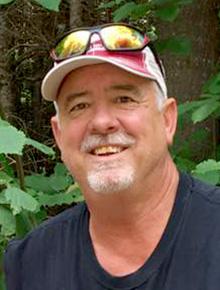
The biggest outdoor day of the year in Minnesota was May 13. The fishing opener, to many, is better than any of the other holidays when you don’t have to go to work.
Minnesota sells more fishing licenses than any other state per capita. There will have been long lines at many boat ramps across the state and especially at the most popular walleye lakes in the state. There will be a larger than normal number of folks who will have lost their patience with other users on this day than almost any other.
The reason for this is that there is always going to be a certain percentage of folks who either do not understand or just don’t care to abide by some of the most common boat ramp etiquettes.
The following ideas will make sure you are not the cause of your fellow fishers’ short tempers. The first is that you should never learn how to back a trailer on opening day at a busy boat ramp. I have spent many a day over the past 35 years just sitting on a lawn chair at a boat ramp to watch the follies. Backing a trailer is really not all that hard when you get the hang of it. Getting the hang of it should be in an empty parking lot done well in advance of the opening day rush.
The key to backing a trailer is simple. Put both hands on the bottom of the steering wheel and turn the wheel in the direction you want the trailer to go. Back up slowly and make slow, small movements of the wheel until you can back that trailer like a professional semi-driver.
Be ready before you get in the unload line. This means you remove the boat tie-downs, load you gear from the vehicle, arrange the boat so you can move freely front to aft.
There is great benefit to unplugging the trailer lights before you back in. This is not always necessary but if you have any questionable light issues, the bulbs will most likely not burn out if they get wet with no power supplied. LED boat lights have pretty much solved this problem, but my old boat does not have them. I carry an entire box of replacement bulbs in the boat’s glove box to ensure I can replace them when needed.
If you are unloading a boat as a solo operator, you should always move the boat around the dock to the non-ramp side once the boat is off the trailer. (I tie it off with a short rope that is never removed from the nose anchor point in the front.) Doing this allows others to continue to use the ramp while you go park and return. This does not work when there are two ramps, one on each side of the dock, but on many smaller lakes and landings there is one dock and one ramp.
Whatever you do, don’t budge in line. Everyone wants on the water as fast as they can, and if you think sneaking into the line and saving a few minutes is OK, then you are one of those folks who either don’t care or don’t know about boat ramp etiquette. Remember that when entering the ramp and figuring our when it is your turn, also includes understanding that the line often alternates from those wanting into the lake and those wanting off the lake. If there are three boats lingering just off the end of the dock, they are most likely waiting for their driver to return with their trailer. You need to take turns with those wanting off just as much as you do those wanting on.
If you are new to boating or a long-term lake user who just doesn’t get out that often, practice loading your boat on and off before you hit a busy ramp. I have seen operators who attempted more than a dozen times to drive their boat onto the trailer. They either have the trailer backed way too far in or not far enough. Learn where the boat fenders are in relation to the water line. Watch this in the rear view mirror. When the step on the fender is just even with the water level, that is my boat/trailer sweet spot.
I was visiting with a stranger at a boat ramp last year as we entertained ourselves watching the antics of an unprepared boat launcher. The gentleman looked at me and said with a smile, “I know exactly what that guy’s problem is.” When I asked him to clarify, he very patiently responded that the person had just not been yelled at enough yet.
Don’t be that person. Practice and get at least recreationally proficient at backing a trailer and knowing simple boat ramp etiquettes. The only thing that I know for sure is that when boating activity is brisk, you will need to pack a much larger cooler full of patience. If anybody knows where you can get a good deal on that, please let me know. I will stock up so I can share it at a busy boat ramp the next time someone runs out of it.
Scott Rall, Worthington, is a habitat conservationist, avid hunting and fishing enthusiast and is president of Nobles County Pheasants Forever. He can be reached at scottarall@gmail.com.



